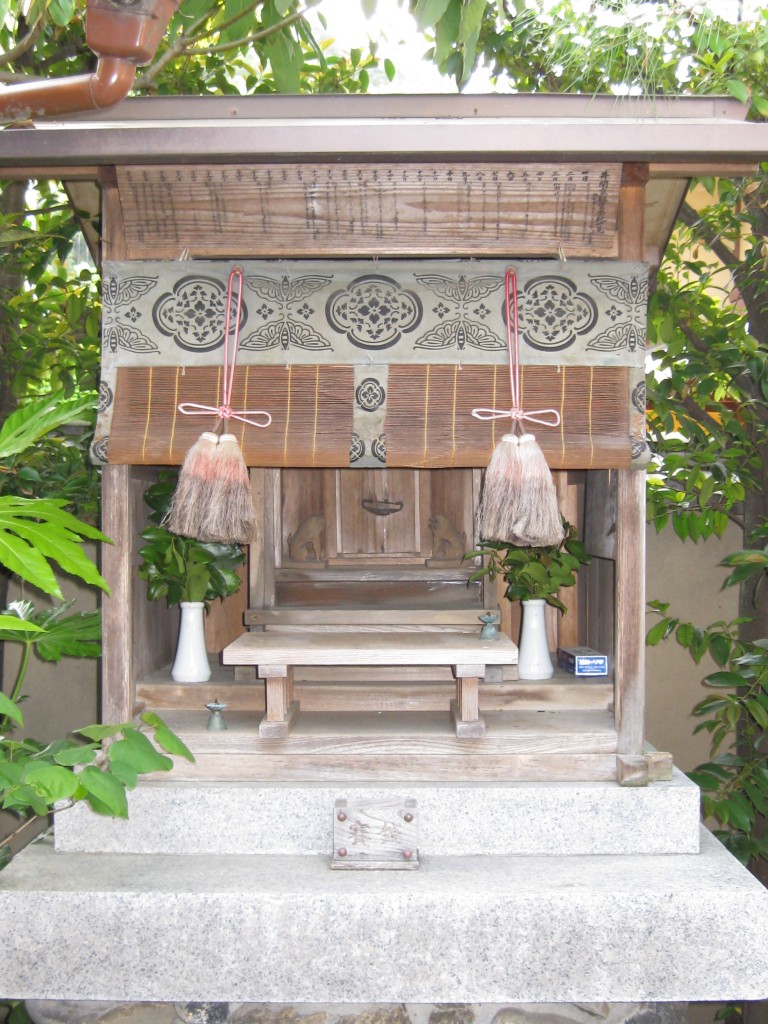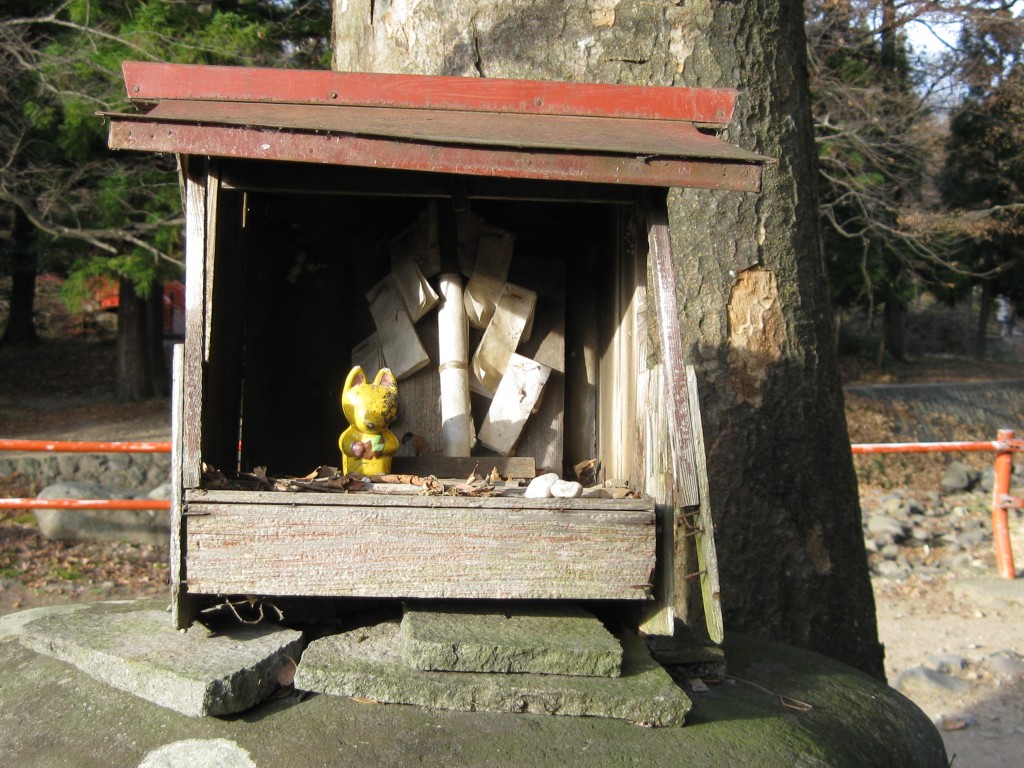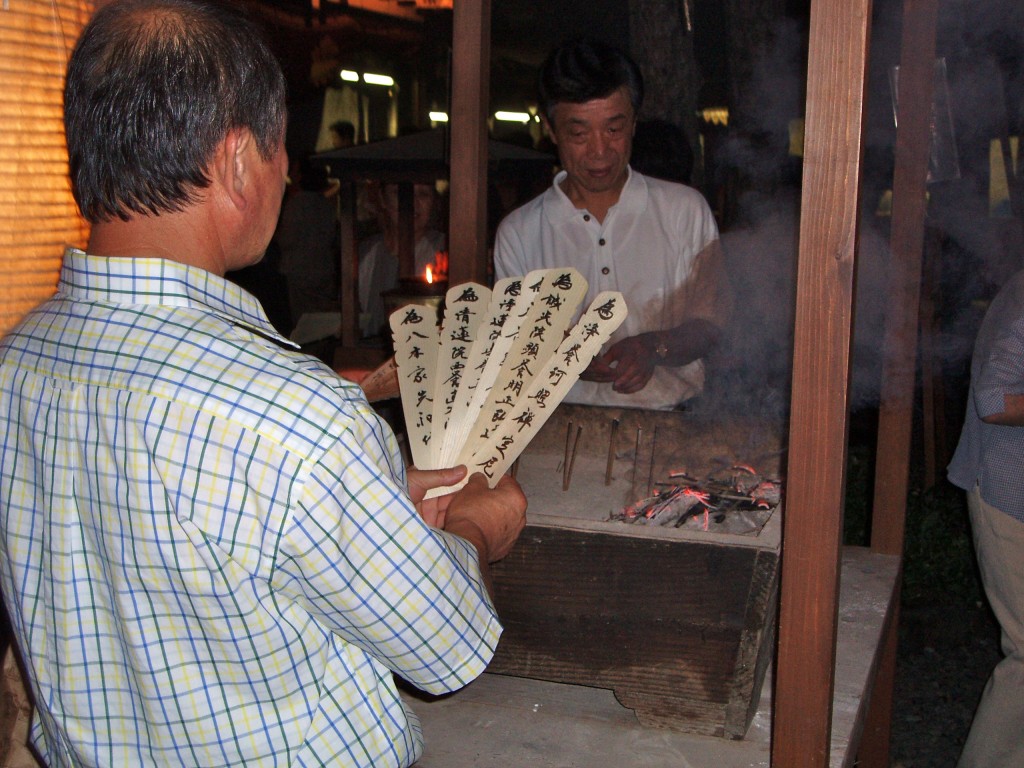I have a good friend – a university teacher – who often tells me she has no interest in religion. Yet every morning she puts out food before the butsudan (altar) for her dead father and tells him what she’s going to do that day. To her, that’s not religion… it’s just a natural part of everyday life. In the article below, it’s designated ‘home religion’ – and as Lafcadio Hearn noted a hundred years ago, it’s Japan’s most fundamental form of spirituality.
************************************************************************************************************************************
Japanese ‘religion of the home’ alive and well, says scholar
KUCHIKOM, Japan Today DEC. 18, 2013

In "Japan: An Interpretation' Lafcadio Hearn depicted the reverence for kami as another form of the worship of ancestors
“The end of the year is approaching. This old man, in the time occupied by a single resolution, began straightening out his disheveled home. Nothing was assigned to any organized place. While first turning toward a pile of clipped newspaper articles on my left and starting to sort them, I pulled out something interesting.”
That is how Nobuyuki Kachi, author of “Silent Religion—Confucianism” (1994) and a fellow at Kyoto’s Doshisha University, opens his essay in the Sankei Shimbun (Dec 15) about the Japanese awareness toward religion.
The newspaper article he had kept was dated Sept 15, 1991. It announced a study by the former General Affairs Agency (now the Ministry of Internal Affairs and Communications), which released the results of a worldwide survey titled “A national census on life and awareness among the elderly.”
According to the report, the most important factor common to older people in all countries was “family and children.” For the second item, the most common reply in the U.S. was “religion and beliefs,” with over 37%. In the UK and Germany, “friends and companions,” placed second, with 37% and over 34% respectively.
Among Japanese respondents, the second most important item was “wealth,” with over 37%. That figure had risen by 9.5 points over the previous survey conducted in 1986. In South Korea as well, “wealth” was the second place reply, so stated by over 32% of respondents.
In the responses given by Japanese, “religion” ranked fifth in importance, stated by 5%.

Despite Japansese claiming to be not religious, shrines are ubiquitous and sometimes full of surprises
This data from the news clipping is now 22 years old, says Kachi, and he doesn’t know what the current figures are. But his gut feeling then and now would be that if anything, importance placed by Japanese on “wealth” will have increased, while “religion” has remained unchanged or perhaps declined.
Based on the above, it would be easy to conclude that Japanese are money-grubbing ghouls, and materialists with little or no concern for spiritual matters and religion. But that, he says, would be jumping to a hasty conclusion and is far from the actual situation.
As is widely known, because many Japanese practice more than one religion, they worship a specialized deity when deemed necessary, offer donations and hope for fulfillment of their prayers (such as praying to a specific Buddhist deity for healing from sickness), in ways that benefit them in the here and now. In other words, their religious belief takes on the form of worshipping a god or Buddha at the times deemed necessary, and the rest of the time they do not involve themselves.
Christians and other practitioners of monotheism, on the other hand, worship a god that they believe is omniscient and omnipotent which requires believers to always maintain that kind of absolutist awareness.

Respect for the dead - ancestor worship - is evident outside the house as well as inside it
From such differences, it’s impossible to engage in any debate over which way is superior or inferior to the other, or what is the true religion.
Viewed from such a perspective, all this means is that the figures for Americans, reflecting their awareness of monotheism, tend to be high, whereas for Japanese, who lack such an awareness, tend to be low. Taken from the perspective of polytheism, however, Kachi supposes the figure for awareness toward “religion and belief” by Japanese would probably be considerably higher than that of Americans.
At the core of religion among Japanese is “religion of the home,” which is conducted through rituals centered around the family’s ancestors (both for Shinto and Buddhism). Even if a survey were to be conducted that dropped these explanations or awareness concerning polytheism, such a survey would only produce results that were far from the actual situation. This awareness of “religion of the home’ among Japanese, Kachi asserts, is alive and well even now. It can be elucidated by the teaching in Chapter I of the “Analects” of Confucius that states, “Carefully perform the rituals of “ending” and memorials of “distance” (mourning your parents and venerating your ancestors).”

Leave a Reply